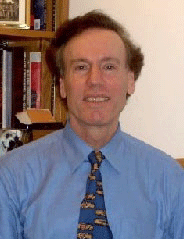Chernoff Kicks off IR Lecture Series

On Thursday, January 29, Harvey Picker Professor of International Relations and Director of the International Relations program Fred Chernoff gave a lecture as part of the International Relations and Foreign Policy Speaker Series. His presentation, “Resolving Conflict in Security Studies and International Relations Theory,” was the first lecture of the series for this semester. This series brings in various professors and visitors to discuss important topics concerning the world. Chernoff’s lecture focused on the study of international relations and how it has progressed over the past few decades.
Chernoff began his presentation by describing the value of studying International Relations and detailing the different ways that it can be studied. He suggested that studying International Relations is a science and described the importance of scientific knowledge in formulating policies and developing a greater understanding of the study.
“Anything that can be called a ‘science’ must progress in the sense that when there is a set of competing theoretical explanations. The science community has procedures that allow it to move toward a best explanation,” Chernoff said.
Chernoff focused his research on three ongoing debates in the study of international relations to analyze the extent of progress that has occurred in the field: nuclear proliferation – why do states build nuclear weapons, alliance formation/balance of power – why do states form alliances in the way they do, and democratic peace. Prior to his research, he hypothesized that while progress is occurring, it is doing so at a slow pace.
“Progress in security studies has been slowed because different scholars use different notions of explanation or different criteria of explanatory superiority,” Chernoff said.
Progress can be measured in different ways based upon people’s views and definitions of the concept. Chernoff emphasized that people can have varying understandings of how conclusions can be met and debates can be resolved, but discussion of these varying ideas is what ultimately leads to progress. Chernoff concluded that there has been substantial progress in the field of international relations, but he emphasized that there are still improvements that need to be made. Chernoff noted that the field of international relations will become more expansive as more debates become apparent in the world.
“I am very optimistic about our field,” Chernoff said.
Assistant Professor of Political Science Valerie Morkevicius will give the next lecture in the International Relations and Foreign Policy Speakers Series on Thursday, February 5.



